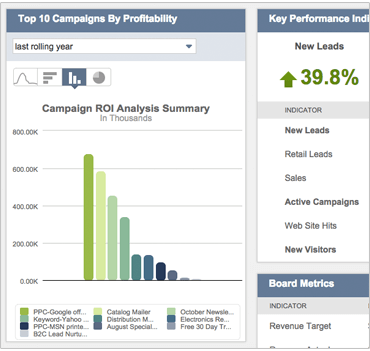Product Features
For Wholesale Distribution
Home / Market
Menu
Market
Reach New Markets
How do you differentiate yourself and build awareness in the markets you serve?
Are you properly nurturing your leads, prospects and customers?
With NetSuite, real-time marketing metrics and comprehensive data empower your business to engage current customers while expanding to new markets.
Campaign Management
- Target your communications precisely.
- Monitor results with deep data and metrics.
- Measure ROI in real time.
- Nurture your leads, prospects and customers.
- Expand opportunities through marketing automation.
Segmentation
- Define your markets.
- Target leads, customers and prospects individually and by segment.
- Get a 360-degree view of your customers.
- Leverage data and insights to uncover new opportunities.

Business Impact
Customer Acquisition
Build your customer base for less cost.
Return on Investment
Measure ROI precisely and in real time.
Marketing Insights
Get more from your marketing dollars.





























